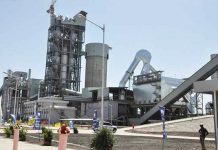
The Imperative Of New Revenue Allocation Formula, by Abubakar Jimoh
Effort to produce a fair, just, and equitable vertical revenue sharing formula that will be acceptable to the majority of Nigerians brought to the fore, the ongoing review process embarked by Revenue Mobilisation Allocation and Fiscal Commission (RMAFC).
Given the recent trend and development in all spheres of the economy, the new revenue sharing formula is expected to take into cognisance current socio-economic trend and political reality in revenue allocation to the three tiers of government—Federal, States and Local Governments.
It would be recalled that since 1966, revenue administration and collection became increasingly centralized, and regional allocation was engineered at the discretion of the military government, putting the states and Local Governments at disadvantage.
Just as the last general review of the Revenue Allocation Formula carried out over 28 years ago has become obsolete, following recurring socio-political changes that resultantly altered the fiscal capacity and responsibilities of each tier of government like the increased political structure from 30 to 36 states in 1996, bringing the number of Local Governments from 589 to 774.
Also, the emerging share of responsibilities of the critical sector like Primary Health Care, Primary Education among others has deepened public clamour for the ongoing revenue sharing review process by Engr. Elias Mbam-led Commission.
To further buttress this fact, an instance is Primary Health Care services—the cornerstone of the health system, which remain out of the reach of the people in many communities across the six geo-political zones of Nigeria.
Despite the tremendous efforts and resources allocated to various reforms, in Nigeria adequate access to Primary Health Care services is hindered by poor governance and accountability, low maintenance culture, ill-equipped and poor infrastructural services; exacerbating maternal and child mortality and morbidity in the country.
With 5% level of funding, Primary Health Care services are bedevilled by 80% disease burden as against 15% and 5% in Secondary and Tertiary Health Cares which are having 15% and 80% funding capacity respectively.
A report published by the World Bank in 2017, confirms that in Nigeria, out of pocket spending for healthcare by individuals and households constitutes 95.7% as against 20% international benchmark.
Besides, with the Universal Health Coverage situated in the context of Primary Health Care development, about 70%-80% of ailments and diseases conditions can be managed through adequately financed and functional Primary Health Care facilities across the country.
Although the World Education Forum in 2000 ended with a strong resolution that national governments have the obligation to ensure that basic education is provided for all their citizens, however, the scale and nature of household financing of basic education in Nigeria remains very problematic, especially among poor households. This worsening challenge by Covid-19 pandemic, seriously questions social justice and equity in public access to Primary Education.
On the failing financial capacity among many households coupled with inadequate funding for Primary Education that dwindles services and enrolment, a recent data from Nigeria’s Ministry of Education estimating that the number of out-of-school children stands at 10.1 million, an increase of more than 3 million from the previous year 2020 and the highest in Sub-Sahran Africa.
This opacity among other factors, has triggered increasingly calls for review and reassessment of inter-governmental fiscal relations in light of a widespread reports that although the states and LGAs are assigned primary responsibility for the delivery of basic public services; as they are not adequately equipped with revenue resources to fulfil their expenditure obligations because the bulk of government revenues is retained by the federal government.
Consequently, existing revenue sharing formula that allocates resources from the Federation Account amongst the three tiers of government—currently 52.68%, Federal Government; 26.72% percent, 36 States; and 20.6% to 774 Local Governments with 13% derivation revenue going to the oil producing states, has raised fairness and accountability questions and public outcry.
More importantly, the inadequate and decaying infrastructure alongside widespread internal security challenges at all levels has reshaped the pattern, burden and responsibilities of security services provision among the tiers of government, perhaps the imperative for the new revenue sharing formula. This includes the ongoing public clamour for fairness and equity in shared responsibilities among Federal, States and Local Government on operationalization and funding for adequate and effective security services.
While the United Nations Sustainable Goal (UN SDG) 13 mandates every member nation to “take urgent action to combat climate change and its impacts”, ecological challenges like global warming, desertification, flooding and population explosion are known to exacerbate disaster management fiscal burden and responsibilities on especially the State and Local Governments. The Goal can only be achieved in Nigeria through adequate legislative and policy actions for practical review of ecological funding and preventive measures that mitigate climate change impacts like life-threatening flooding and desertification.
Similarly, flooding is the most common disaster in Nigeria with increasingly suffering by the majority of Nigeria’s states from annual flooding during the rainy seasons caused by increased precipitation linked to climate change, as witnessed in devastating flood that wreaks havoc with monumental loss estimated at N2.1 trillion in 30 of 36 states in Nigeria, as reported by the National Emergency Management Agency. Rapid desert encroachment is reportedly affecting northernmost states from moderate to severe rate, with an increasing threat on livelihoods of some 40 million people.
Likewise the existing outdated population data provided by various controversial agencies leveraged in horizontal allocation, giving no consideration to the recent changes across the country.
Moreover, it is worthy of a note that the apparent mismatch between statutorily assigned functions and tax powers of each of the three levels of government remains unaddressed by the current vertical formula. In 2001, a study published by the World Bank reveals that amongst developing countries, Nigerian fiscal federalism is distinguished by the overwhelming concentration of tax jurisdiction and collection at the level of the federal government; as all major sources of government revenue are controlled by the federal government.
Abubakar Jimoh, a development communications specialist writes from Abuja.

































